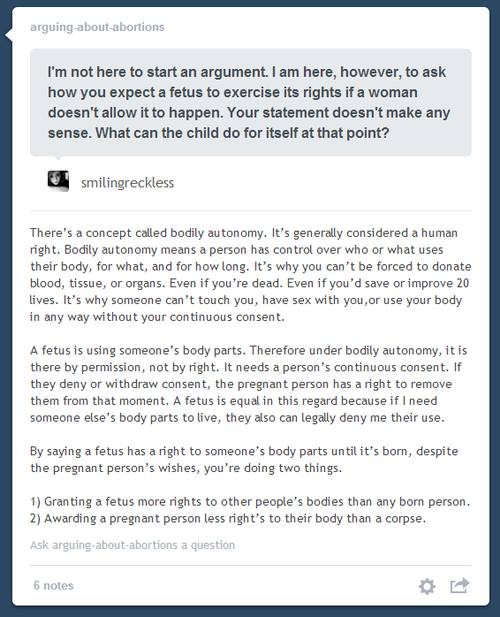THIS:
Q:
I’m not here to start an argument. I am here, however, to ask how you expect a fetus to exercise its rights if a woman doesn’t allow it to happen. Your statement doesn’t make any sense. What can the child do for itself at that point?
A:
There’s a concept called bodily autonomy. It’s generally considered a human right. Bodily autonomy means a person has control over who or what uses their body, for what, and for how long. It’s why you can’t be forced to donate blood, tissue, or organs. Even if you’re dead. Even if you’d save or improve 20 lives. It’s why someone can’t touch you, have sex with you,or use your body in any way without your continuous consent.
A fetus is using someone’s body parts. Therefore under bodily autonomy, it is there by permission, not by right. It needs a person’s continuous consent. If they deny or withdraw consent, the pregnant person has a right to remove them from that moment. A fetus is equal in this regard because if I need someone else’s body parts to live, they also can legally deny me their use.
By saying a fetus has a right to someone’s body parts until it’s born, despite the pregnant person’s wishes, you’re doing two things.
1) Granting a fetus more rights to other people’s bodies than any born person.
2) Awarding a pregnant person less right’s to their body than a corpse.
(See also)


